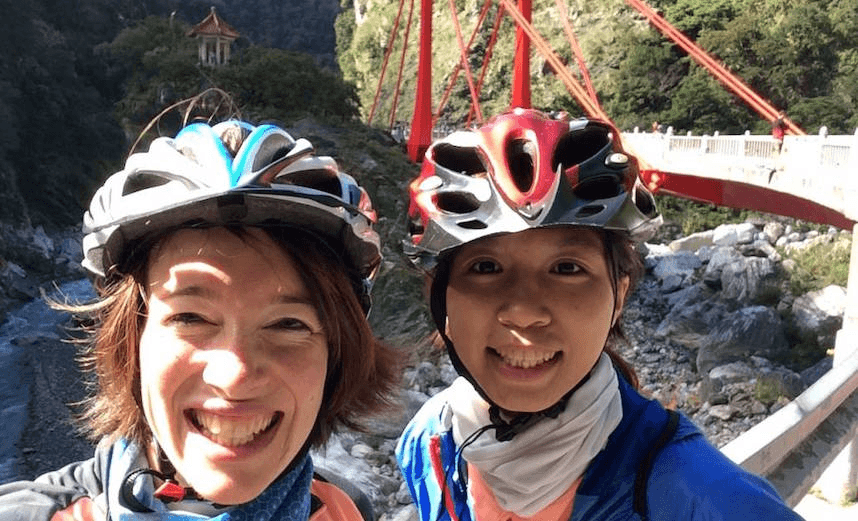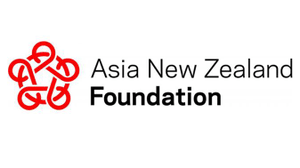From Chinese 3D manufacturing to Korean soap operas to Japanese street fashion, the 21st century belongs to Asia. Little wonder, then, that an increasing number of young New Zealanders are ditching the UK OE and heading to Asia instead. In the second of a two part series on The Asia OE, Catherine McGregor talks to Wellingtonian Michelle McCarthy about her experiences living in Japan, South Korea and Taiwan post-university.
Strange but true: an OE doesn’t have to mean following the herd to London to spend your days discussing Brexit and your nights hanging out with fellow Kiwis in the pub. Just ask Michelle McCarthy. She’ll tell you that OEs are all about new experiences (it’s right there in the name, after all) – like backpacking through South East Asia, cycling around the island of Taiwan, learning the etiquette of dining out in Japan, and making life-long friends in small town South Korea. For McCarthy, now a fluent speaker of both Japanese and Mandarin Chinese, an Asia OE was also about exploring new languages, and it was that subject we started with when we spoke recently.
There’s one question nearly everyone has about an OE in Asia: do you need to speak the language? You spoke Japanese before you arrived there, but is it absolutely essential?
Language is one thing that people think is a necessity but actually I don’t think it really is. I have a lot of friends who are living and working in Tokyo who don’t speak any Japanese, and have lived there for three, four, five years. So there are opportunities even if you don’t speak the language, though in Japan you’re limited to either teaching or [international] recruitment, those industries where everything is done in English. Other than those, yes you do need some Japanese.
Being able to speak the language really enriches your experience, because – as well as just being able to communicate more easily – it gives you a better understanding of the culture and the people. In saying that, I don’t think language should be a barrier for people who want to go and live, work or study in Asia.
What were the things you liked and disliked about life in Japan?
In each of the cultures I’ve lived in there have been things that have really stood out and I’ve thought “Wow, I’m going to do that when I get back to New Zealand.” In Japan, they’re very generous; if people go out for a meal together, one person will shout everyone, and then the next time it will be someone else in the group. So it all ends up the same, but that feeling of being able to treat people, looking after your friends and family – I really like that about the culture.
In the opposite direction, one thing I tried to bring to Japan was a sense of community. Here in New Zealand we’re really good at opening up our homes and having people over, but in Japan it isn’t really like that. So when I found my own place I got one that was slightly bigger than what most of my friends had. I made it my mission to invite people over at least once a month and have a dinner party or lunch, to create that community feel and give them the chance to experience New Zealand culture.
Before Japan, you lived in Korea for a time. How did that come about?
After I graduated from university here in NZ the job market wasn’t great and I couldn’t find any available jobs that I really wanted. Then I saw an opportunity to go to Korea and teach English there. I was posted out to the countryside – a small town of about 200 people surrounded by rice fields, with one small school.
There was a lady working at the local bank who’d seen me coming in and she gave me a call, even though she didn’t speak a word of English. I somehow stumbled through the conversation and it turns out she was inviting me for dinner with her and her husband. And I went, and we ended up becoming amazing friends, although it was like 5-year-old level conversations because my Korean was so terrible. Over the six months I was there they took me right round Korea and on weekend trips away. They really gave me an insight into Korean culture and were really intrigued by New Zealand, what it was like here. I went back to visit them at the start of last year and they’ve had triplets now so that was quite a hands-on visit!
‘It was sort of like two MBAs rolled into one’. Read part one of our series on the Asia OE here
Are there any obvious differences between the Korean and Japanese cultures?
One thing they have in common is they both work very hard, but there are big differences. Japanese are a bit more conservative, whereas Koreans express their opinions and feelings a lot more openly. In the past, a lot of people have been drawn to Japanese pop culture – animation, manga, that sort of thing – but now K-pop (Korean pop) and Korean dramas are huge. People from throughout Asia are flocking to Korea to see the locations of where these dramas are filmed, or they just love the K-pop bands so they want to go and see a concert. So I think Korea is doing really well in leveraging their pop culture, in the same way that Japan has done for a long time.
Let’s fast forward a few years. After two years in Japan, your next stop was a language school in Taiwan. Why was it important to you to learn Chinese?
I knew that a lot of the businesses I was interacting with in Japan were looking to China, for joint ventures and that sort of thing. So I thought if I could speak Chinese I could add another tool to the skillset and maybe better support NZ businesses as well. I was lucky enough to be awarded a Prime Minister’s Scholarship for Asia and I applied to a language school in Taiwan that a few of my diplomat friends had recommended.
How did you find life in Taiwan? You lived in the capital, Taipei?
Yes, that’s right. Taiwanese people say “Oh Taipei is so busy!” but after living in Tokyo for the previous two years it really just felt very relaxed and open. You can take the train to the coast, and it’s really easy to get out and explore the country. I cycled a route the locals call huandao [literally, ‘around the island’] from Taipei in the north, right around the east coast – which is so beautiful – then up to Tainan in the southwest. It was me and one of my table tennis friends from university – and that’s something I really want to mention: if you’re going on an OE, a great way to connect with people in the local culture is through doing a sport or another extracurricular activity. In Taipei, a lot of people would just hang out with other international students in their spare time and didn’t really engage with the local people that much. But because I play table tennis, the first place I go is the table tennis stadium. I know that even if I can’t speak the language, I can interact with people through the sport. Through it I have made so many local friends, in Korea and Japan and Taiwan – they’re the friends who are still there.
Was your decision to go to Taiwan rather than mainland China primarily about the quality of the school? Did you ever consider choosing to study on the mainland instead?
I’d been to Taiwan eight years previously, to train in table tennis over the New Zealand summer break while I was at university. So I knew that Taiwanese people are really lovely, that the food is delicious and the climate great, just a really easy place to live.
And now you can speak Chinese, which is such a huge attribute these days.
It is, but using it in New Zealand can be harder than you think. If I look at my American classmates, they went home and had such a huge selection of businesses they could apply for jobs at, including big multinationals. But in New Zealand we don’t really have that, so you really need to take your time to determine what are the companies that are active in the Chinese market, and how you can be useful to them.
What do you foresee your connection with Asia to be going forward?
I’ll use my Asia skills in my new role as a business growth manager at the Wellington Regional Economic Development Agency, and they also have other departments like events and tourism and investment, which have quite a lot of involvement with China and Japan and Taiwan. So my language skills will be beneficial for that, because they can pull me into those teams or work with them when there’s a need.
I’m a member of the Asia New Zealand Foundation Leadership Network and I’ve been selected for the Foundation’s Offshore Forum in Seoul, in March. You learn about the economic and political situation in that country, you hear from different speakers on society and culture and education – lots of different aspects of the NZ/Korea relationship. And I’ll be going to Nepal later in the year for the wedding of a friend who’s in the Leadership Network with me. Nepal has always been on my bucket list so I thought what better opportunity to visit that the wedding of a friend.
The Asia New Zealand Foundation runs programmes in business, arts and culture, education, media, research and informal diplomacy – all designed to equip New Zealanders with first-hand experience of Asia and to grow their confidence in engaging with the region. Its Leadership Network is a global professional network comprising nearly 400 talented young people aged between 20 and 40 who are dedicated to the future of New Zealand-Asia relations. For more information about the Foundation’s research on OEs in Asia click here.

